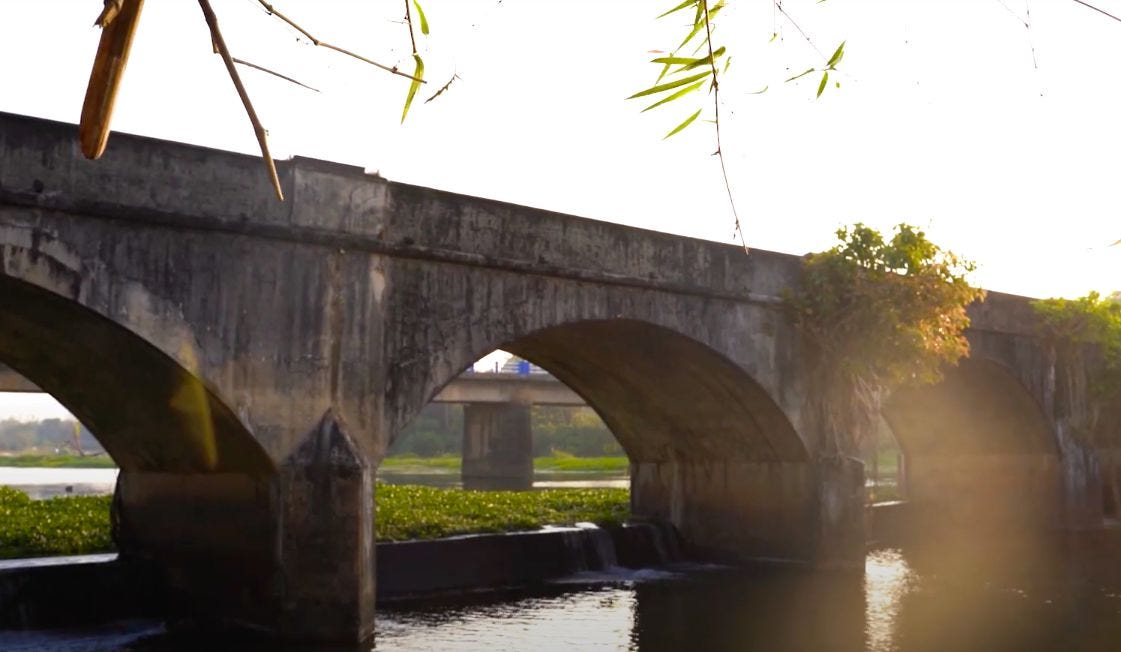040 - Old Bridges
In my village begins the river Nila. A little away from my hamlet (it literally is one), near the town centre lies an obscure bridge running across Nila. Built in 1852 by the then collector W Robinson, it is one of the oldest bridges in Kerala.
Today it is only a sight to sit under; its only significance its age and beauty.
A newer bridge runs parallel to it that carries the burden of modern mobility. This bridge, known as the old Parli bridge stands as witness to time turning to history. Arched and narrow with an old soul, I suppose it is a bridge across time.
I read Rudyard Kipling’s story The Bridge Builders. Made me think about Kipling’s legacy today.
I mean how do you reconcile with the idea that the same person wrote If and The White Man’s Burden? I suppose these days it is a question a lot of us grapple with about many once beloved artists.
George Orwell’s words on Kipling is one way to look at it:
Kipling can be dangerous because his writing is seductive. When you read a great writer you start to see things through the writer’s eyes. Let’s be clear, we no longer live in Kipling’s world nor should we try to get back to it. After acknowledging that act, it has to be admitted that he wrote exceedingly good poems.
That Orwell, despite his admiration for Kipling’s work, went on to become the voice of anti-imperialism and totalitarianism is important to understand. At least in the context of how you deal with the differences you have with those whose talents you recognise. Orwell like a ford under this Kipling bridge gives us a way to get across and back, wading through the murky waters under it.
Writers - their stories and poems have always served the same function as bridges. Accidental pieces of logs or engineering marvels, their words start with connecting ideas and their work brings us closer to distant lands, cultures and people.
What should be done with bridges that are out of sync with their worlds?
In Dana Stabenow’s Silk and Song, a fictional account set in the 14th century of Kubla Khan and Marco Polo, Polo’s granddaughter Johanna sets on an adventure across the silk route. When her story reaches the borders of Baghdad she sees a cluster of ruin.
“…more poets fail from lack of character than from lack of talent.” Conversation with poet David Wojahn. Also, his poem Absolute Rhythm.
Water colour painting in Britain, 1750 - 1850.
Orwell, Kipling and Empire, Douglass Kerr
The World’s of Tangier, Paul Bowles
It is June, and Lupin’s second season is almost upon us. Till then, we have The Secrets of the World’s Greatest Jailbreak Artist.
Bridges in nature have a manner of making us — humans, welcome in that surrounding. Pieces of tied up wood or stacked stones have a way of saying that you could belong here. That among these giant trees, the rushing rivers, the wind, the sun and plentiful flowers, you too have a place here. Bridges aren’t our tools to overcome nature, but a way to connect with it; to reach out, adjust, make amends. That we can pass through, to get to the other side, and that … we can always come back.





